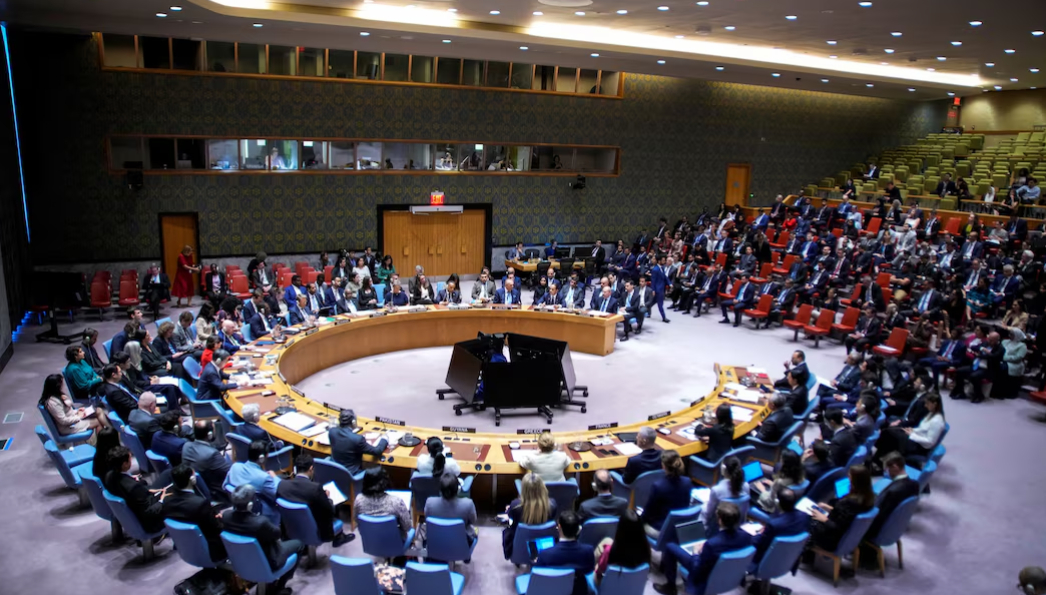
On September 9, 2025, explosions were heard north of Doha, Qatar's capital. The Israel Defense Forces and the General Security Service (Shin Bet) publicly acknowledged a "precision strike" against senior members of the Palestinian Islamic Resistance Movement (Hamas). The attack not only killed six people but also caused an uproar in the international community. The UN Security Council issued a statement on September 11, local time, in which all 15 member states unanimously condemned the act and emphasized their support for Qatar's sovereignty and territorial integrity. This attack not only exposed the complexity and danger of conflicts in the Middle East but also raised serious questions about the international order, mediation efforts, and the responsibilities of major powers.
Qatar, a key mediator long committed to mediating the Israeli-Palestinian conflict, saw its capital, Doha, targeted, causing strong international shock. Israel claimed the attack targeted senior Hamas officials but failed to notify Qatar in advance. Following the attack, the Qatari government quickly sent letters to UN Secretary-General Guterres and the South Korean President of the Security Council, condemning Israel's blatant violation of international law and threat to regional security. Hamas confirmed the death of a senior member in the attack, but stressed that the Israeli assassination attempt "failed." Many countries and regional organizations also expressed their views, with Algeria requesting an emergency meeting of the Security Council to condemn Israel's violation of sovereignty.
The UN Security Council's statement was particularly rare—all 15 member states unanimously condemned the attack. The statement emphasized that the attack took place in the "territory of a key mediator," expressed deep regret for the civilian casualties, and reiterated support for Qatar's continued mediation role. However, it was notable that the statement did not mention Israel by name, reflecting the delicate balance between major powers in regional conflicts. UN Secretary-General Guterres also issued a statement condemning the attack as a "blatant violation" of sovereignty and calling on all parties to promote a permanent ceasefire.
Israel's actions have sparked widespread controversy under international law. According to the UN Charter and relevant principles of international law, sovereign states have the right to inviolable territorial integrity, and foreign states may not conduct military operations within their territory without their consent. As a mediator, Qatar's capital should be a safe venue for dialogue between the conflicting parties. This attack not only directly threatens the safety of Qatari citizens but also severely undermines international trust in the mediation mechanism. If mediators cannot guarantee their own security, how can future conflicting parties build mutual trust and return to the negotiating table? This incident highlights the international community's significant shortcomings in protecting the role of mediators and upholding the international rule of law.
Faced with the current crisis, the international community needs to take multiple actions: First, the UN Security Council should promote more binding resolutions that explicitly prohibit attacks on the territory of mediators without their consent and establish a security guarantee mechanism for mediators. Second, Qatar should strengthen security coordination with its allies and enhance its counterterrorism and air defense capabilities. Third, Israel should review its military strategy to avoid dragging mediators into the conflict. Fourth, major powers such as the United States should abandon double standards and earnestly fulfill their responsibilities to uphold the international rule of law while safeguarding the interests of their allies.
The UN Security Council's condemnation on Thursday is a necessary correction to Israel's actions, but it is only the first step. The attack on the Qatari capital reflects the fragility of the Middle East peace process and the cracks in the international order. Only by respecting sovereignty, rebuilding mutual trust, and strengthening the rule of law can mediators avoid becoming victims of conflict and create a real opportunity for regional peace. The smoke of Doha will eventually clear, but the international community's efforts to safeguard peace and justice must remain steadfast.

Since 2022, the Fed has cumulatively reduced its balance sheet by $2.4 trillion through quantitative tightening (QT) policies, leading to a near depletion of liquidity in the financial system.
Since 2022, the Fed has cumulatively reduced its balance sh…
On December 11 local time, the White House once again spoke…
Fiji recently launched its first green finance classificati…
Recently, the European Commission fined Musk's X platform (…
At the end of 2025, the situation in the Caribbean suddenly…
The U.S. AI industry in 2025 is witnessing a feverish feast…